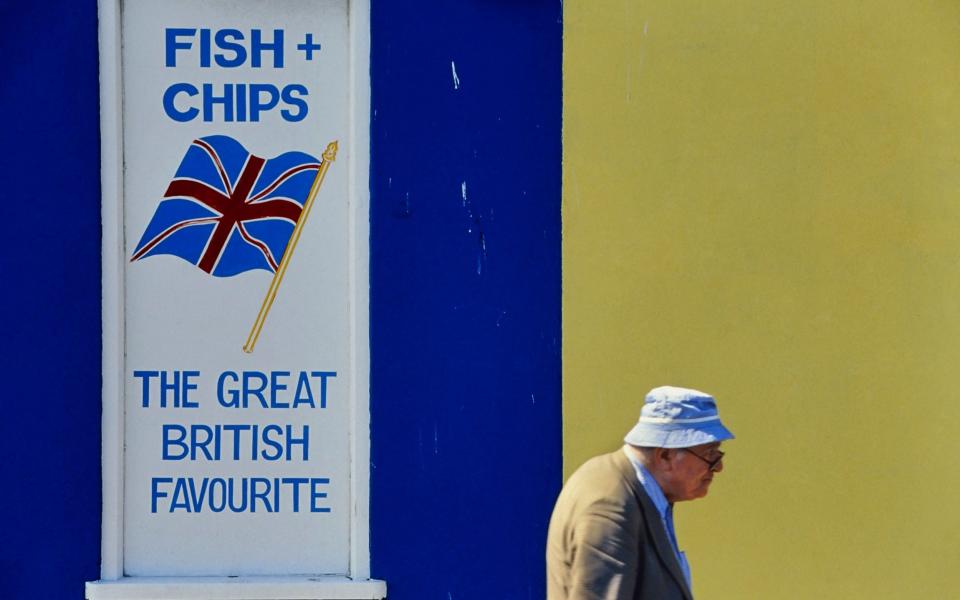Letters: The country should vote on whether or not to legalise assisted dying

- Oops!Something went wrong.Please try again later.
SIR – There has been much recent correspondence on assisted dying, with views for and against. As 2024 may well be an election year, surely it is the ideal opportunity to have this settled by a majority. A referendum on, at least, the basic principle of allowing assisted dying should be included as part of the voting process. Not to allow this would be, I believe, an affront to democracy. I call for MPs to introduce the question as soon as they return to the Commons.
Arthur Bayley
Tyldesley, Lancashire
SIR – I have always been torn in this debate. However, Elaine Watson’s powerful and moving letter (December 30) about the painful death of her husband has changed my view, which is surely what this newspaper is about.
Andy Crooks
Newtownards, Co Down
SIR – Charles Moore (Comment, December 23) highlights that “assisted dying” may not be a suitable term for euthanasia, but that doesn’t make it “assisted suicide” either.
Euthanasia is hardly the equivalent of a doctor or relative of a person with suicidal impulses handing them a tub of pills for an overdose. It is allowing a terminally ill person, who has weighed all other options, to have a choice over the manner and timing of their death.
There is a clear difference between helping someone who is terminally ill to die and helping someone to die who is not.
Emilie McRae
Trowbridge, Wiltshire
SIR – David Milne KC’s logic (Letters, December 27) is not easy to follow.
First, he fails to explain why legalising assisting suicide would not be an endorsement of it (it would).
Secondly, he writes that it would be just as accurate to claim that the current law is endorsing the suffering of those who would want such assistance. This does not follow. The law’s prohibition on assisting suicide aims to discourage suicide, not to promote suffering. Indeed, the law requires doctors to palliate terminal suffering, even if so doing shortens life.
Thirdly, even if the present law were said to be endorsing the suffering of the dying, and it was replaced by a law permitting assisted suicide for the terminally ill, why would such a law not be endorsing the suffering of the chronically ill – of patients who could not kill themselves, even with assistance, because of paralysis, or of patients who were not competent?
Professor John Keown
Kennedy Institute of Ethics
Georgetown University
Washington DC, United States
SIR – John Landamore (Letters, December 30) hopes any new legislation will allow him to decide when he meets God. Perhaps he should consider whether God will be happy to meet him before his appointed time.
Kathy White
Woking, Surrey
Don’t forget Ukraine
SIR – Grant Shapps has said that the UK is ready to attack Houthi rebels in Yemen (report, January 1). Surely we should be concentrating our efforts on supporting Ukraine in its struggle to counter the threat to Europe by the invasion of Russia, rather than getting involved in another conflict in the Middle East.
Ray Knight
Thaxted, Essex
SIR – While the Israel-Gaza conflict and suffering are truly awful, as we enter 2024 we should not forget the Ukrainian people as they defend themselves against Vladimir Putin’s unprovoked aggression. More than 10,000 Ukrainians have lost their lives since the full-scale invasion in 2022, and far more since the conflict that began in 2014. If the West does not support them, Putin will come for the Baltic states next.
Geordie Hayward
Wickhambreaux, Kent
SIR – After reading Isabel Oakeshott’s article on our relations with India (December 30), I do hope that the Foreign, Commonwealth and Development Office takes time to reflect on the potential amount of £57 million in financial support it plans on sending to India for 2024-25.
It is extremely concerning that Prime Minister Narendra Modi is more than willing to carry on accepting such aid, while simultaneously holding talks with Russia to support Putin’s anti-West strategy.
Mary Moore
London E2
Peers’ impartiality
SIR – Those of us who firmly believe in democracy should also acknowledge its chief defect – that a need to be re-elected periodically discourages politicians from making unpopular, but necessary, long-term decisions.
John Fagan (Letters, January 1) is right about the hereditary peers, whose chief benefit was to provide long-term thinking in our parliamentary system.
Tony Newberry
Liss, Hampshire
Safe skiing
SIR – I was astonished to read that the members of the group tragically caught in the avalanche (report, January 1) were skiing off-piste with a professional instructor, but were not wearing avalanche transceivers.
Last time I did a large search exercise, while training with the Ski Club of Great Britain, we had to find five buried “casualties”. My group found them all within five minutes as they were wearing transceivers.
It’s key to find buried people as soon as possible. Survival rates drop as low as 50 per cent after only 15 minutes. With transceivers this is possible and they cost less than a two-week lift pass.
I wear mine all the time, whether skiing on or off-piste.
Ian Brent-Smith
Stratton Audley, Oxfordshire
Rigged honours
SIR – In the 1970s, when I worked in the fishing industry in Fleetwood, our company chairman and managing director was based in Hull. As well as making ropes and wires for the fishing industry, we also supplied the British Navy with arrestor wires, tow ropes and mooring ropes. For this, he was awarded the OBE (Letters, January 1). As all the riggers on our factory floor agreed, this stood for Other Buggers’ Efforts.
Keith Snape
Fleetwood, Lancashire
Civil servants at home
SIR – It appears that large numbers of civil servants are still either “working” from home all the time, or visiting their offices for only one or two days a week. Surely by now it is clear that the Civil Service can manage perfectly well without these people. They should therefore be made redundant, which would save the Government a large amount of money that could be usefully spent elsewhere.
If this is beyond the capacity of the present administration, it could at least pass a short Act requiring all government servants to attend their allocated offices when ordered to do so, or else be deemed to have offered their resignations.
Jolyon Grey
Bourton-on-the-Water, Gloucestershire
A princely pint
SIR – Carlsberg has always been very clever at marketing (Letters, December 30). It seems our love of lager with Indian food goes back to Prince Axel of Denmark’s visit to Veeraswamy restaurant in Regent Street in 1924. He enjoyed it so much that he went again, apparently taking a barrel of the Danish royal beer with him. It was a big hit.
John Hopkins
Beckenham, Kent
SIR – Winston Churchill was not alone in preferring to keep the champagne to himself (Letters, December 29). In a diary entry on September 17 1933, James Agate, the theatre critic and bon viveur, wrote how he took a friend “to supper at the Trocadero, and was very glad when he only wanted to drink beer”.
Agate continued: “This enabled me to have my usual pint of champagne. I am dead without it. But I cannot afford to buy champagne for other people. If, therefore, I invite anybody to a meal, either I must behave like a cad or remain dead. I prefer the former.”
Christopher Gray
Oxford
SIR – When Richard Dimbleby was very ill in hospital, Queen Elizabeth II sent him several bottles of champagne as it was said to be good for stomach upsets.
Maggie Hughes
Gnosall, Staffordshire
Tea trick
SIR – We regularly use the service of two brothers, who work in our garden from dawn to dusk. They get cups of tea every hour (Letters, January 1), but strangely never ask to use the lavatory.
Ian Saponia
Purley, Surrey
Spoons’ fish ’n’ chips are good, crisp and golden

IR – I cannot agree with Ed Cumming about the food in Wetherspoons (Comment, December 30). I have eaten in the Eastbourne branch several times and the fish is fried to order, with a beautiful crisp batter. The pub is always very full, with happy customers munching away.
Tessa Boots
St Leonards-on-Sea, East Sussex
SIR – Ed Cumming’s comments on the aesthetics and ghastly food in Wetherspoons pubs contradicted his previous praise for them, as well as being wide of the mark. Nobody goes to a “Spoons” expecting gourmet food and Michelin-star standards, and, yes, some – but not all – of the fare is obviously pre-prepared and probably microwaved. But ghastly? Never! One can consistently go to any Spoons, get a pint and be served a perfectly acceptable plate of food within 10 minutes – and all for about half the cost of the same in other pubs.
Charles Cheesman
Orpington, Kent
All drivers should take regular refresher courses
SIR – There is a strong possibility that the majority of drivers in this country take their driving test before the age of 20. You also report (January 1) that there are now more than 150,000 people over 90 still driving. Between the ages of 20 and 90 there are, however, no compulsory updating courses or tests, unless you are offered a speed awareness course.
If we are to make roads safer, shouldn’t everyone be obliged to retake a test every 10 years? Insurance companies could insist and it might bring premiums down. It would also boost employment, as we would need more driving instructors.
Jonathan Williams
Pickworth, Lincolnshire
SIR – Who is more dangerous: an elderly driver who has driven safely for years without having an accident, or a younger one who has just passed their test after several failed attempts?
Surely the best way to promote safe driving is to require all drivers to take a refresher test at regular intervals, and for there to be an upper limit on the number of tests a person can take.
When I practised as a solicitor, the majority of my road-traffic clients were not senior citizens.
Tim Leete
Burgess Hill, West Sussex
SIR – In some European countries, young drivers are limited to only carrying passengers over the age of 21 for the first year after they have passed their test.
The recent sad deaths of young men in a car accident in Snowdonia, and also in South Wales, might have been avoided if the Government had taken the necessary action to reduce motoring accidents involving new drivers. The urgent imposition of appropriate restrictions in the UK might save young lives.
John Skipper FRCS
London SW19
Letters to the Editor
We accept letters by email and post. Please include name, address, work and home telephone numbers.
ADDRESS: 111 Buckingham Palace Road, London, SW1W 0DT
EMAIL: dtletters@telegraph.co.uk
FOLLOW: Telegraph Letters on Twitter @LettersDesk
NEWSLETTER: sign up to receive Letters to the Editor here

